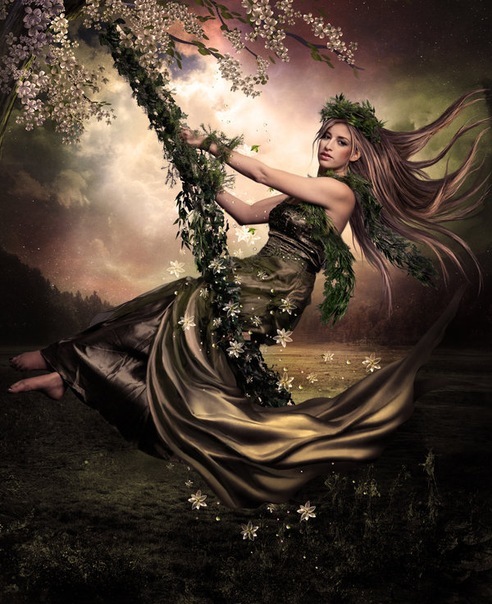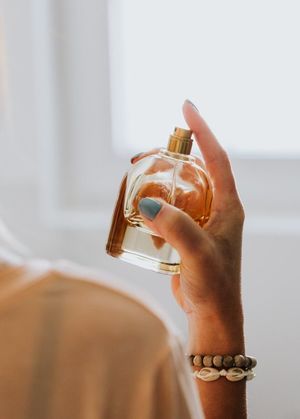Ancient Slavic mythology is rich in fantastic creatures. One particularly interesting and misterious group of these creatures, the mavkas, have even inspired the great Ukrainian poetess Lesya Ukrainka to write her immortal poem "Lisova pisnya" ("Forest Song").
As ancient Ukrainian mythology has it, mavkas are the souls of dead children living in forests and fields.
The word "mavka" (or "navka") likely derives from a common Slavic root "nav" meaning "death" or "dead body". Some researchers suggest that the word may come from the Indo-European root "nau" meaning "corpse".
Mavkas were little children who either died unbaptized, were killed by their mothers, or were children who died during the so called "Mermaids week" (the week after Trinity when according to Slavic mythology, mermaids walk the earth). It was believed that after death mermaids took these children.
So what did mavkas look like? They looked either like children or young beautiful women with flower crowns on their long hair, wearing thin white grave clothes.
Mavkas-girls had long blond hair. And mavkas-boys had short, red, curly hair. They could be found in the woods, at the crossroads, or in the fields.
Mavkas had a nice, round face, and a beautiful, tall stature. But they looked like young women only from the front; from the back one could see all their insides as they didn't have skin. They did not cast shadows. When running on the grass, it rocked under their feet.
Mavkas lived in forests and also in caves. In the spring, as soon as the snow began to melt, mavkas planted flowers near mountain caves, and when everything flourished, they were swaying on the branches, picking flowers, garlanding and dancing. In the places where they danced, grass grew better. Mavkas could live in bodies of water like rivers and lakes. They often made friends with mermaids. In some regions of Ukraine mavkas were considered a kind of mermaids(sometimes, they were called "forest mermaids"). Mavkas had many things in common with mermaids.
Mavkas took revenge with people for their early death. They would misdirect people into swamps where the people would drown. Mavkas could also tickle a person to death. Mavkas often lured young fellows and killed them, just like mermaids did. Sometimes mavkas asked travelers to give them a comb. If they got it, they would comb their hair and go away, otherwise they could kill the travelers.
It was believed that mavkas appeared on earth in the springtime.
And on Green holiday (the last three days of the week preceding the Trinity, and the first three days of the Trinity week), mavkas danced with frenzy near lakes and rivers. On Mavkas' Easter (otherwise referred to as Clean Thursday), mavkas and mermaids went into meadows and forests - they turned into people and even ate ordinary human food.
On Mermaids' week, they ran through the fields and shouted "My mother gave birth to me and then she buried me unbaptized"..
If someone baptizes a mavka, it turns into an angel and thanks its benefactor by various favours. But it can only be baptized for seven years after the death of the child that turned into a mavka. If in seven years baptism did not happen, mavka will never become an angel and will remain a demon forever.
Effective means of protection against mavkas, according to the beliefs of ancient Ukrainians, were garlic, onion, horseradish, and lovage. Also it was considered that wormwood could protect humans against these treacherous beauties (as well as against mermaids, mavkas' friends). In Ukrainian mythology there was also a character who hunted mavkas and thus saved people. It was Chuhayster - a funny, humorous, cheerful goblin with blue eyes, covered with black or white hair.
Mavka were knowledgeable and were endowed with magical abilities (again, as well as mermaids). People treated them respectfully, especially during Pentecost, they brought them sacrificial bread and placed it on fields, hoping that mavkas could contribute crops and scare away evil.
It's an everlasting Ukrainian paradox: on the one hand, mavkas were considered evil, people were afraid of them, and on the other hand - they worshiped them and honored them...
If you noticed any mistake or inaccuracy select the text fragment and press Ctrl+Enter.






